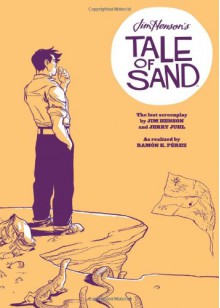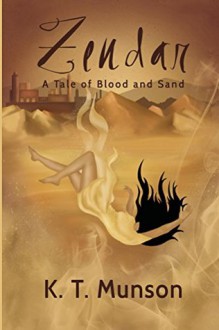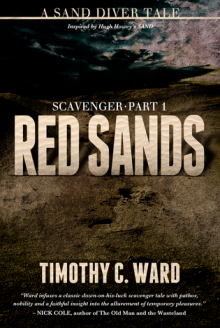
I first decided to buy Tale of Sand out of instinct, having read a couple of news about it being published and taking a brief look at it at my usual comics store. Later I heard it won the Eisner Award, but still I kept postponing it until now. It became my first read of 2013, and an odd start at that.
Tale of Sand is existentialist an exploration of the human being through the external materialization of himself in an absurd and surreal story imposed to an unknown individual for unknown reasons. Having said that, it is a very confusing work of art. I don't know if that stems from it being an adaptation of a lost script for a film that never was or if the script itself already defined all that incomprehensible plot. Probably the latter, seeing that Jim Henson and Jerry Juhl were the creators of The Muppet Show and Sesame Street. For their fans, there's a bonus in this book, considering all the ideas that are both present here and used later on their work.
One follows a man traversing the desert (what's more metaphoric for a depressive introspection than that?) in an apparent race / escape of which he knows no rules or conditions apart from a map that he's told is not to be trusted. In the desert, the most unpredictable stuff happen to him, from a man carrying a giant ice cube that melts to the perfect size right when he puts it on a woman's drink (one who is sunbathing by a pool with a shark), to finding a day/night switch on a rock and being followed by a football team, all this while being persecuted by a mysterious enemy with an eye-patch.
Ramón Pérez's art, on the other hand, convinced me right away. This book has some of the best illustration I've seen in sequential art, specially considering it is the image that tells the story with little occasional help from text. The drawing, the design, the colour, everything here is near perfection and deserves all the nominations and award it got.
Did I understand that absurdist analysis of the human or the man's existence? Not at all, though the final revelation does show the purpose of the story more clearly. But I do mean to read it again, on a more appropriate moment, when I can dedicate more time and pay much more attention to it. Because it's definitely worthwhile.
This review was originally published in Portuguese and English on my blog


 Log in with Facebook
Log in with Facebook 







